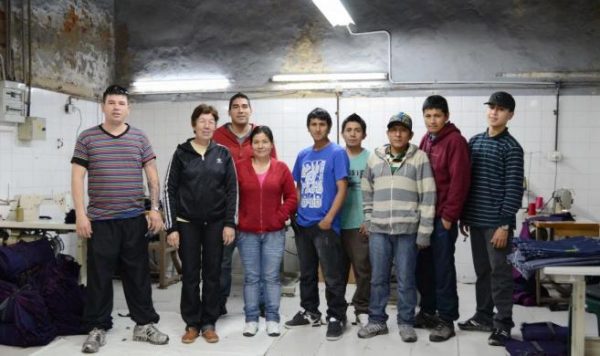In Argentina a co-operative set up by prisoners is helping ex-offenders reintegrate in the labour market. Inmates at a jail in La Plata set up Kbrones co-operative in 2009, after taking part in a workshop on how to make leather goods, which helped them gain the skills they now use in their work.
“We came up with the idea of setting up a co-operative so that we could have a job when we got released,” explains Julio Fuque, secretary of the co-op and one of its founding members.
“We had the chance to learn in prison and by doing so we transformed the negative in a positive because we understood that we could build something with our hands, help each other and our families and reintegrate in the society.”
In prison the group learnt how to manufacture leather goods and on their released they decided to work in the textile industry. The co-op is now producing over 2,500 products a month including shirts, vests, trousers and playsuits. During this process the founding members worked with the country’s national federation of worker co-operatives (FECOOTRA), which helped them set up the co-op. They also received financial support from the nation’s Social Development Ministry to buy the first machineries and supplies.

The co-op currently includes 22 worker members, most of them ex-offenders. Others are seamstresses who joined later after having worked in clandestine textile factories in the informal economy.
The success of the initiative led to creation of the programme Co-operatives in Prison, which aims to develop similar initiatives across the country. Kbrones products were also in the spotlight with the Argentine co-operative movement’s visit to Vatican back in 2013.
Ariel Guarco, the president of Cooperar, the national trade body for co-ops, gave Pope Francis a leather thermos flask holder produced by the co-op. The bag has inscribed the message “co-operatives build dignity”.
Mr Fuque says the co-op aims to help set up similar projects and teach prisoners about the co-operative model. “The co-operative movement is what gave us an identity,” he said, adding that the co-op had helped in the inclusion process of those wishing to change.
Click here to read more about how co-ops make sure no one is left behind